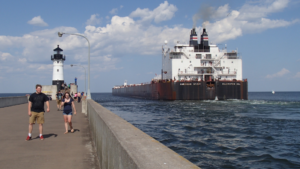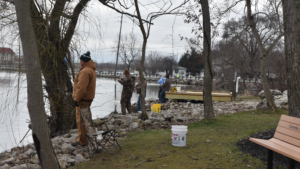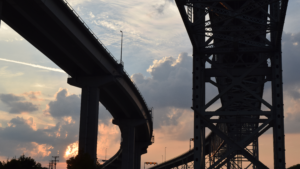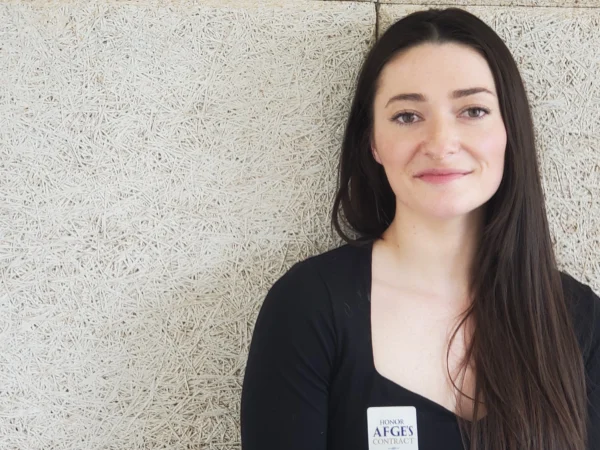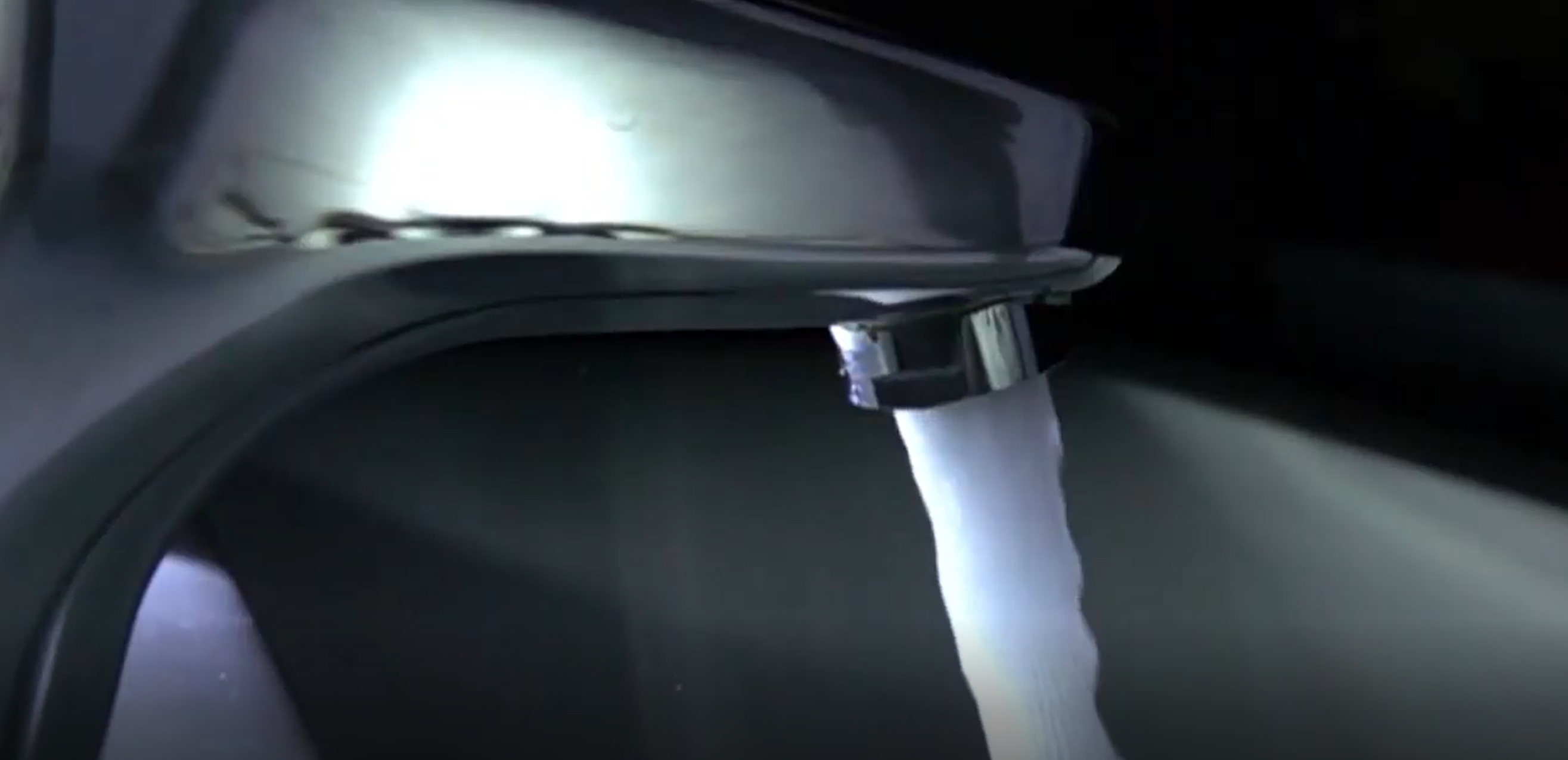
Editor’s Note: This story was updated on April 1, 2020, to include the Ohio governor’s order to prevent water shutoffs.
Daily life during the COVID-19 pandemic is challenging for all but especially for those without access to water for basic consumption and essential health needs.
While Detroit has long been the target of water rights activists for its water shutoff policies, Milwaukee and Chicago have led the region in erring on the side of ensuring water for all even before the onslaught of COVID-19.
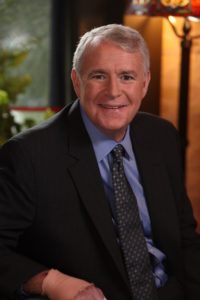
Milwaukee Mayor Tom Barrett, Photo by Barrett for Wisconsin via flickr.com cc 2.0
“Milwaukee Water Works never disconnects water service because of unpaid bills,” Aaron Szopinski, Mayor Tom Barrett’s policy director, said in an email response to Great Lakes Now.
All utilities in Wisconsin have been ordered to continue service during the current public health emergency by the state’s Public Service Commission, according to Szopinski who said “this is not different than how we usually operate.”
Milwaukee will also suspend late fee charges on utility bills during the crisis, Szopinski said.
In Chicago, one of the potential COVID-19 “hotspots,” a pre-existing moratorium on water shutoffs has been in place since Mayor Lori Lightfoot took office in May 2019.
And last November Lightfoot announced a water affordability program that was approved in her first budget and implemented earlier this year.
“For far too long, too many residents have been forced to choose between paying for their water bill or other fundamental necessities,” Lightfoot said in a statement announcing the program.
“This program protects our residents, ensures access to basic human needs and builds on our commitment to reform our government toward ending systems that are punitive for those who can least afford it,” she said.
Read the rest of Great Lakes Now’s coverage of water shutoffs:

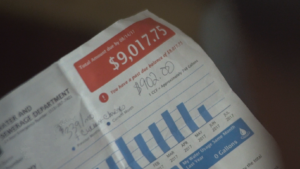
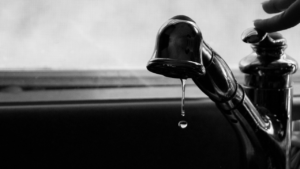
Other cities struggling to reconnect
But not all cities in the region have been in front of the shutoff issue, according to Food and Water Watch’s public water campaign director, Mary Grant.
“Some cities have been very effective at service restorations – like Miami,” Grant said.
When Miami announced that it had suspended water disconnections it said it had already reconnected previously disconnected households, according to Food and Water Watch’s research.

Mary Grant, Public Water for All Campaign Director – Food & Water Watch, Photo courtesy of Food & Water Watch
“But other cities, like Detroit, Buffalo and New Orleans, are struggling to reconnect households in a timely manner. I don’t know why there is such a discrepancy,” Grant said.
Water rights activists have been pressuring Detroit Mayor Mike Duggan and Michigan Gov. Gretchen Whitmer for months to end shutoffs and restore previously disconnected service.
The recent pressure included a letter from the environmental justice advisory council she appointed requesting her to take action.
Whitmer finally issued an executive order on Saturday requiring water service to be restored to occupied homes for the duration of the COVID-19 crisis.
The order did not address activists’ demands for water distribution stations in communities hardest hit by shutoffs until all service is restored, which is now required by executive order by April 12.
The Michigan chapter of Clean Water Action thanked Whitmer for the executive order and congratulated the activists who had worked for it, but continued to call for the water distribution stations.
“The last step to ensure all Michigan residents have the clean water they need to wash their hands during the Covid-19 pandemic is to establish water distribution stations in all communities with high levels of water shut-offs until water service is fully restored,” said Mary Brady-Enerson, the group’s Michigan director, in a statement to Great Lakes Now.
Whitmer’s spokesperson Chelsea Lewis addressed the water distribution station issue in an email response to a Great Lakes Now inquiry.
“The state through the State Emergency Operations Center is trying to provide needed resources to communities across Michigan. In some cases, this includes portable water for those currently without potable water in their homes. Ensuring we reach vulnerable populations with services continues to be top of mind for the Governor,” Lewis said.
In Ohio, the Cleveland water department has suspended shutoffs for non-payment “until further notice,” according to the department’s website. A phone number was provided for customers to call to have previously disconnected service restored.
On March 31, Ohio Gov. Mike DeWine issued a statewide order preventing further water shutoffs due to non-payment and requiring service to be restored to customers who have been disconnected.
In Buffalo, New York, water shutoffs ended in early March but residents must call to have previously terminated service for non-payment restored, according to a Buffalo News report. But activists say the city knows where the shutoffs have taken place and the onus shouldn’t be on citizens to contact the water department.
In Minnesota, “the Duluth Public Works & Utilities stopped all utility shut offs for gas and water due to the COVID-19 crisis on March 17,” utility manager John Upton said in an email.
Upton said the utility will work with customers on payment plans during the COVID-19 crisis and has restored service to customers at their request.
“We do not know of any residences that are currently off for credit,” Upton said, and fees are not being charged for restoration of service.
Canada’s approach
Canada takes a different approach to access to water for consumption, essential sanitation and health.
“The practice of shutoffs is not widespread at all and tends to be done only when all avenues have been exhausted,” long-time Canadian social justice activist Maude Barlow told Great Lakes Now in an email.
In principle, provinces and municipalities allow shutoffs, Barlow said, but they are not widely used and “Quebec has a province-wide policy that doesn’t allow shutoffs.”
Barlow has been a water rights activist on the world stage for decades, including as a senior adviser to the United Nations and advocating at the grassroots level for an end to shutoffs in Detroit.
She connected fighting COVID-19 to access to clean water for everyone.
“This pandemic makes it very clear that universal access to clean water is key to fighting the virus and that the lack of clean water is one of the ways that this disease differentially impacts the poor and marginalized,” Barlow said.
Keep up to date with Great Lakes Now’s COVID-19 coverage:
